Navigating the art market, especially as a new collector, isn't always easy. It has a language of its own and understanding the basic terminology involved can help you research and purchase that perfect piece. Here's our glossary of the basic art terms you may come across.
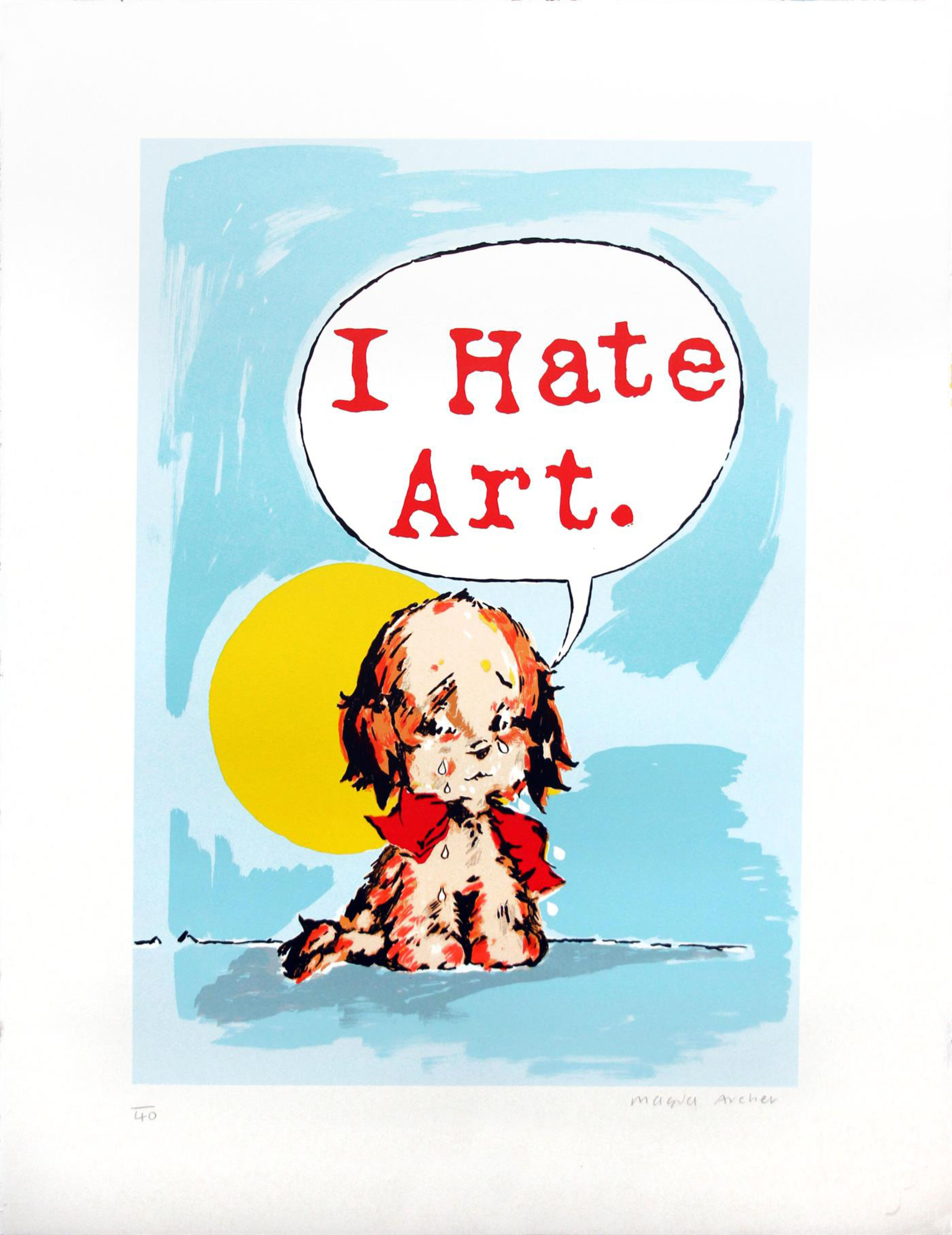
I Hate Art by Magda Archer, 2014
Appraisal
An appraisal is the evaluation of an artwork’s market value. Appraisals can be offered by galleries, auction houses and other market experts.
Artist Commission
Commissioning art is the process by which an artist creates a work of art on a client’s invitation. Artwork may be commissioned by private collectors, by the government, or businesses and can often resemble endorsement or sponsorship.
Artist Proof (AP)
When technology was less advanced in the early days of printmaking the first prints of an edition were of a higher quality. The artist would often keep these higher quality prints for themselves.Now that printing technology has advanced the quality of a print is no longer a concern and each print in an edition is identical.The artist often creates an AP as a working trial. These are likely to have extra annotations or different colours etc., which show the work's progress.It is considered more desirable to own an AP partly because of tradition, but mainly because there are fewer AP's within an edition which heightens the desire to own one. The number of APs in an edition should not surpass more than 10%. Due to this restricted supply, they are usually priced slightly higher than other prints.
Authenticity
Authenticity is a term used to describe an original work of art as opposed to a reproduction. Authenticity can also relate to forgery, in order to establish whether or not a work of art was actually created by the artist it pertains to be by.
Buyer's premium
An additional surcharge that auction houses will add onto the hammer price, which is typically 25% of the hammer price.
Certificate of Authenticity
A Certificate of Authenticity or COA is any document that proves the artwork is authentic. An artwork’s proof of authenticity can take many different forms, from invoices to other forms of proof artists or galleries can create for an art piece. For certain artists such as Banksy who have often been subject to artwork forgeries on the secondary market, you will need additional and official documentation that proves your artwork’s authenticity.

Pulp Fiction - Unsigned by Banksy, 2004
Condition report
A condition report indicates the current condition of an artwork at sale time, and states if theres any damage, restoration, or noticeable imperfections in the work.
Consignment
In an art consignment, the owner of an artwork consigns it to a vendor - usually a gallery, auction house or dealer - for the purpose of selling it. Consignment provides owners with the professional services of the vendor, who should have an extensive client list to offer the piece to, as well as a larger platform than owners could typically achieve unaided. Consigning works is usually free with a commission charged in the event of a sale. You can learn more about Hang-Up's consignment service here.
Diptych & Triptych
A diptych is an artwork consisting of two paintings or editions, usually sold together and meant to be presented next to each-other. A triptych is the same but with three works instead of two.

Fuck Art, Let's Dance (Diptych) by Harland Miller, 2011
Edition
An edition is a copy of a work of art made from a master. It commonly refers to a series of identical impressions or prints made from the same printing surface, but can also be applied to series of other media such as sculpture, photography etc.
Estimate
When artworks go for sale at auction, each lot is given a low and high estimate, representing the auction house's experts opinion about the range in which the lot might sell for. Estimates are based on the examination of an item and recent auction records of comparable pieces.
Hammer Price
Quite literally the price upon which the auctioneer’s hammer falls, determining the sale price. This price does not include the buyer's premium.

Image from Sotheby's Contemporary Evening Sale, 18th May, 2017
Hors Commerce (HC)
Hors Commerce translates to 'out of trade' in English. HC's and AP's are very similar except HC's are only available directly from the artist. A HC is given as a gift to the artist for allowing the publisher to print their images. Of all the special prints, the HC's are the most valuable, since they are more rare.
Insurance Valuation
For an insurance valuation an artwork is appraised and evaluated by an expert and an official document on its current value is issued. It can be used for insurance purposes or simply one's own records. You can learn more about Hang-Up's valuation service here.
Limited Edition
Limited edition means there is a limited, set number of prints or artworks in the edition. The artist has been directly involved in creating the edition and each piece within the edition will be identical in terms of quality and size.

Detail of No Time For Love by Tracey Emin, 2020.
Numbered Print
The numbering of a print takes the form of a fraction. It shows the number of the print and the total number of prints in the edition, for example '25/500' means the print is number 25 within an edition of 500. Limited edition prints are usually numbered in pencil to reduce the risk of fraud as computers can't trace it.
Open Edition
In this case there is not a set number of copies of the artwork available and more could be produced after the first run.
Originals
Original Art is any work considered to be an authentic example of the works of an artist, rather than a reproduction or imitation. That original may be a painting of some kind, or a sculpture, or a performance work, or one of many other kinds of media.
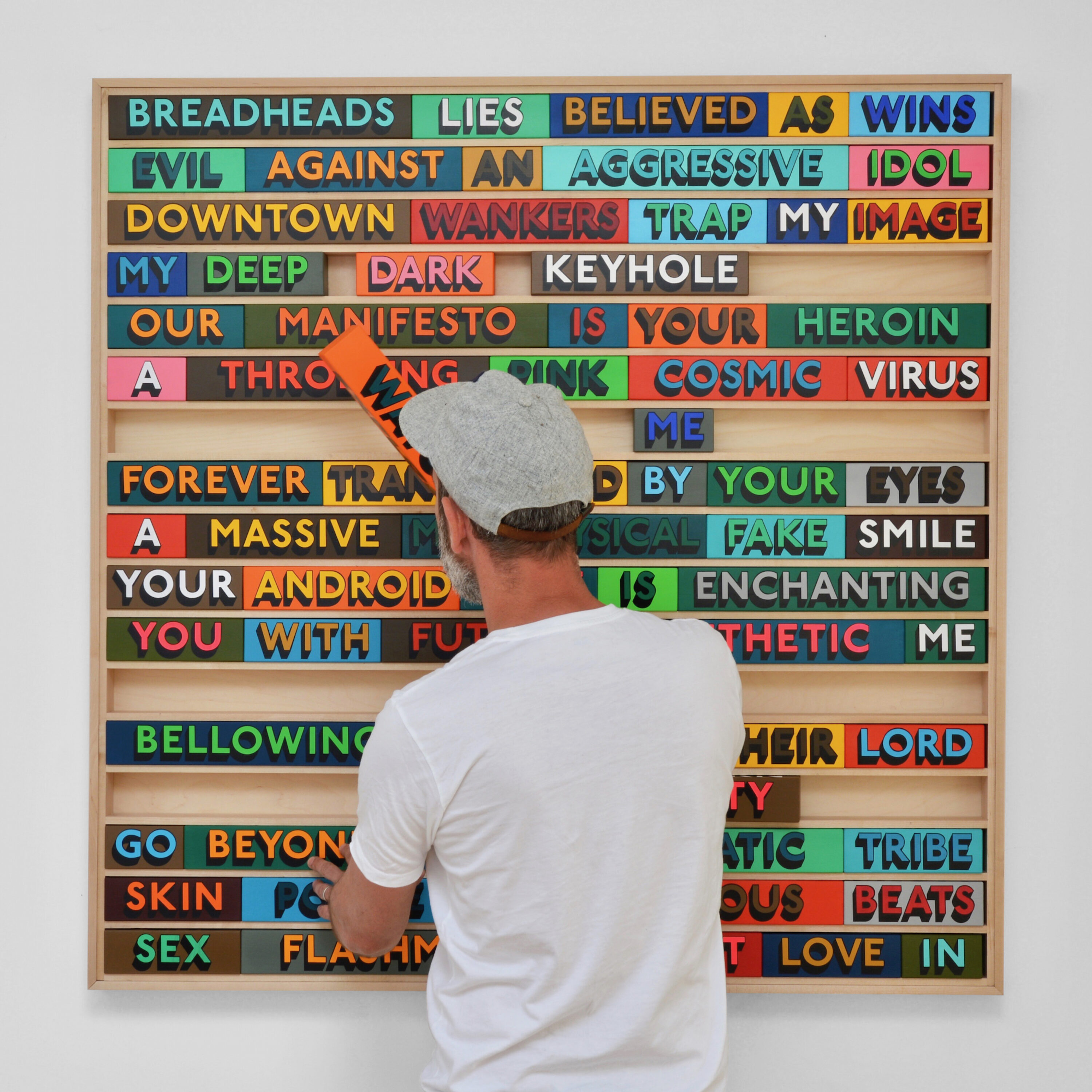
THE FUTURE LEAKS OUT by Tim Fishlock, 2018
POA
POA stands for Price on Application. Often higher-priced and more sought after items are marked as POA. This is because the market can move quickly with prices rising based on auction results, new exhibitions, announcements relevant to the artist, etc and it also allows the seller to confirm availability before any online order is processed.
Primary Art Market
The market of artworks sold for the first time. Art on the primary market may come directly from the artist's studio, the artwork's publishers or the gallery that represents the artist.
Print Edition
A print edition is the total number of impressions from a given print otherwise known as the edition size. Each print in an edition is numbered in recto or verso. You can get more information on print editions and techniques in our guide, here.

Fags, Birds and a Couple of Guns: A Retrospective of the Weird and Wonderful Nancy Fouts at Hang-Up Gallery
Printers Proof (PP)
As the name suggests, a Printers Proof is a print given to the printer(s) to thank them for their work. The number of PPs in an edition depends on how many craftsmen were involved in the production. PPs are similar to APs in that there are fewer of them. However, PPs are normally even rarer than APs, which makes them slightly more expensive. APs and PPs are both numbered in the same way, for example 1/5 AP and 1/5 PP.
Provenance
Provenance is formal documentation establishing the chain of ownership of an artwork. It can be an important part of the authentication process and can sometimes impact the value of a piece.
Secondary Art Market
The market for works of art that have already been sold once and that have returned to circulation. These artworks are usually sold through galleries, dealers or at auction.
Unique within a Series
This term is used when an artist makes multiple copies of the same artwork. It is common for artists to create a series of unique works within a series. The example below is of Tim Fishlock's, The Future Leaks Out which is a series of 10 unique works.

99 Problems series by Tim Fishlock, 2018
More from Art Market
Art Market
The Hang | August | Your monthly round up of art market based news
28 Aug 2025 | 4 min read
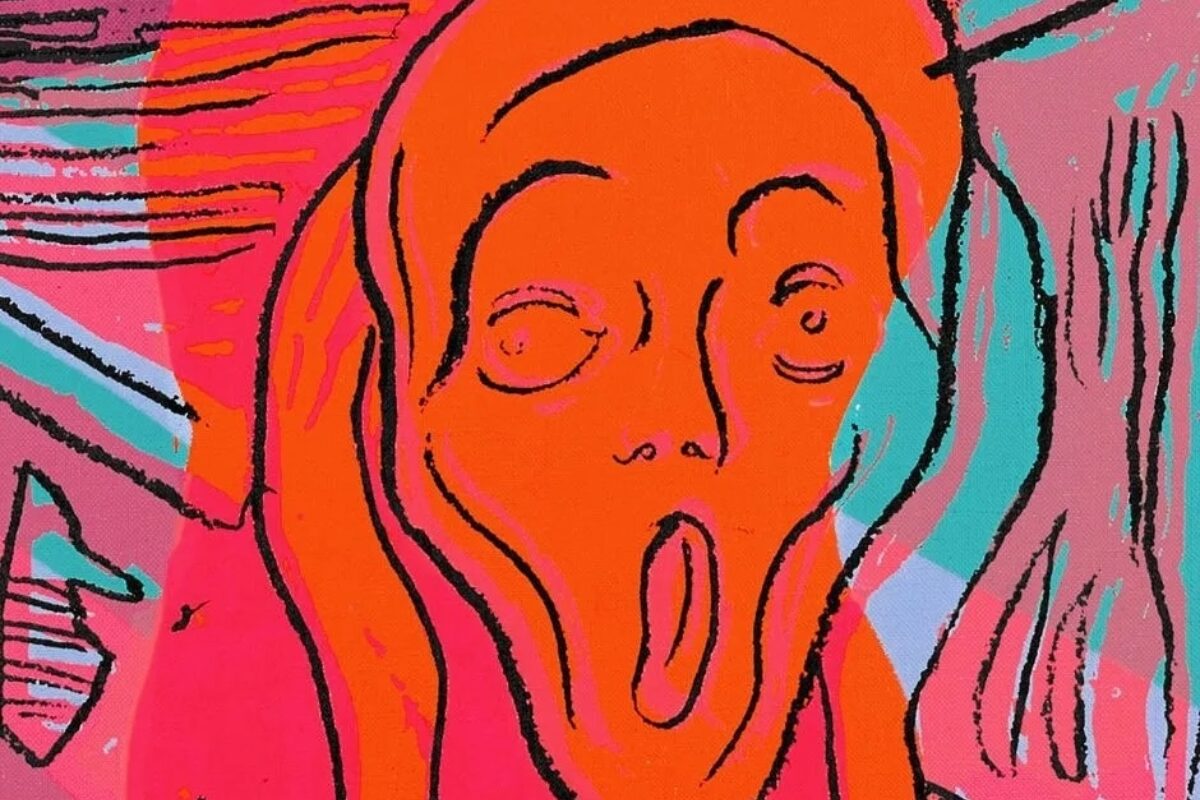
Art Market
The Hang | Your monthly round up of Art Market based News
31 Jul 2025 | 4 min read
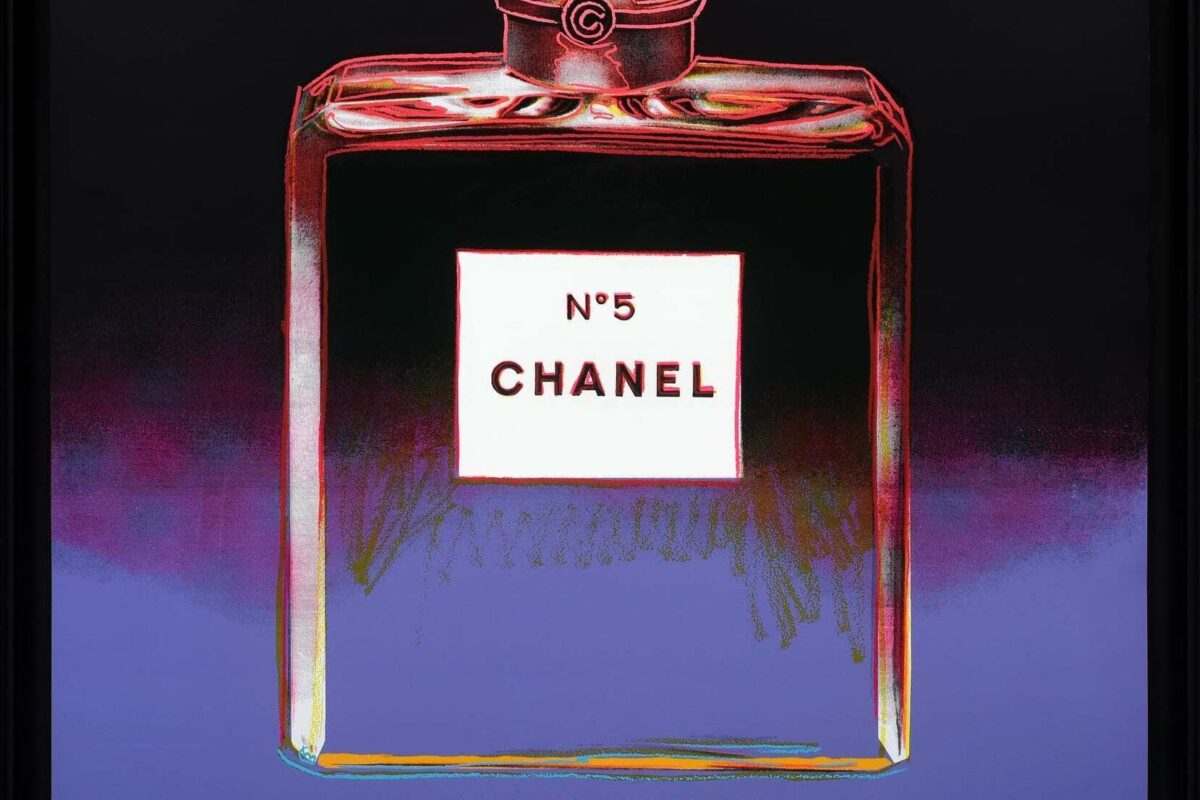
Art Market
The Summer Window: 5 Reasons Why Summer is the Best Time to Buy Art
22 Jul 2025
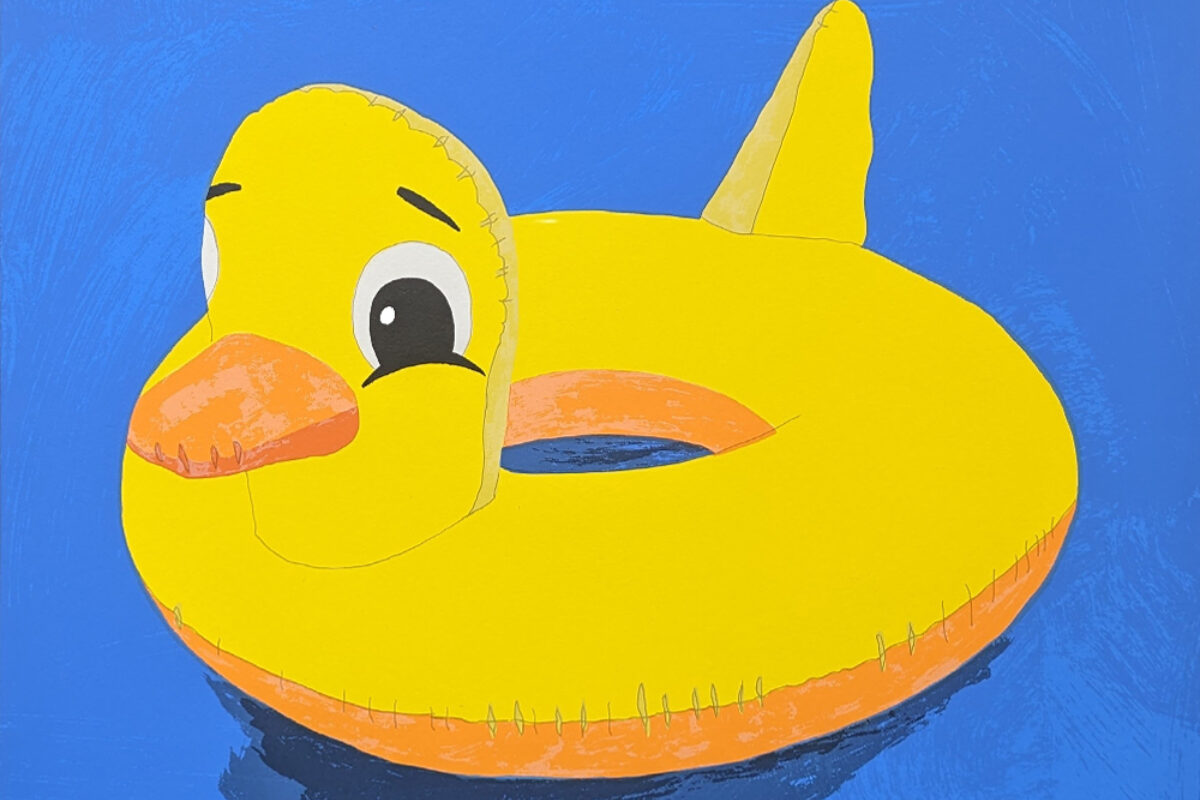
Art Market
Warhol's Star Portraiture Proves Successful at Auction
29 May 2025 | 3 min read

Art Market
Banksy’s Heartfelt Mural Returns to NYC
8 May 2025

Art Market
Art Market News: Trump's Tariffs
10 Apr 2025 | 3 min read

Art Market
Market Watch: Banksy Auction Highlights
2 Apr 2025 | 2 min read

Art Market
Market Watch: Red-Chip Art
19 Mar 2025 | 2 min read

Art Market
Market Watch: Auction highlights | RESULTS Part 2
7 Mar 2025 | 2 min read
